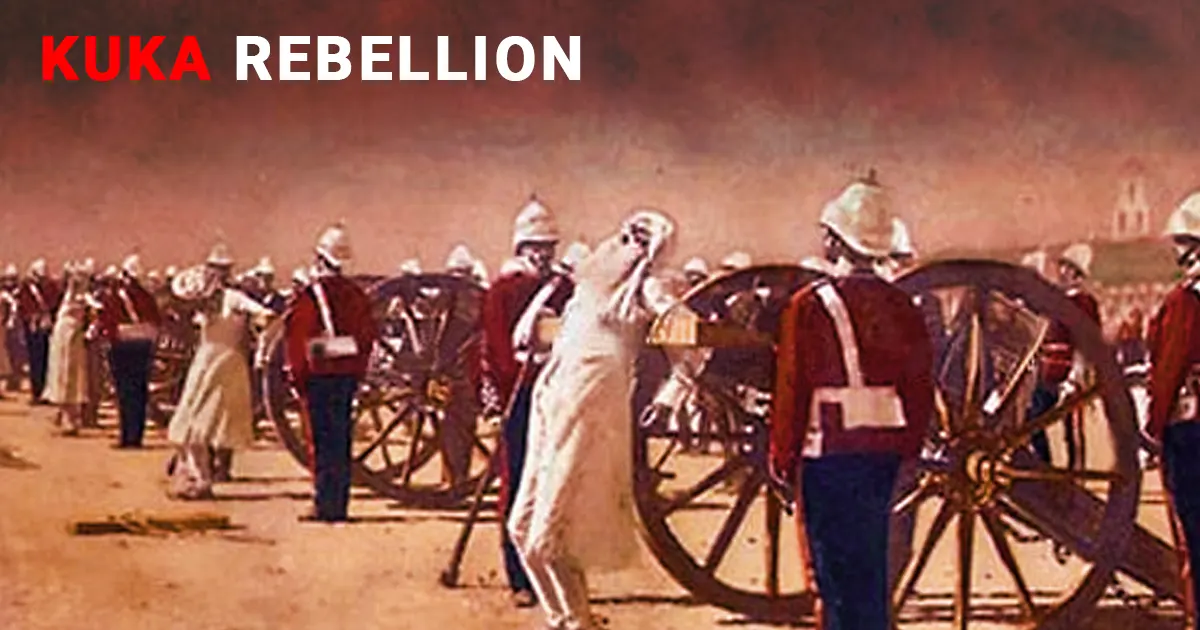GS 1 – MODERN INDIA

Context: On January 17, Punjab Chief Minister paid tribute at the Namdhari Shaheed Smarak in Malerkotla to honor the martyrs of the Kuka Rebellion, a significant anti-British movement in Punjab’s history.
What is the Kuka Rebellion?
- The Kuka Rebellion was an anti-British uprising initiated by the Namdhari sect, also known as Kukas, in Punjab.
- The movement blended religious reform with resistance to colonial authority.
- Peak Period: The rebellion culminated in January 1872, marked by major confrontations in Malerkotla and the Malaudh Fort.
Key Leaders
- Satguru Ram Singh: Founder of the Namdhari sect and key visionary of the movement.
- Other prominent leaders: Kuka Hira Singh and Lehna Singh.
Reasons Behind the Movement
- Religious Reform:
- Advocated against social vices such as meat consumption, alcohol, and foreign goods.
- Promoted vegetarianism, self-reliance, and swadeshi principles.
- Colonial Oppression:
- Discontent with British rule and its native collaborators.
- Cow Slaughter:
- Protests against cow slaughter, which was deeply offensive to the sentiments of the Kukas.
Key Events
- Attack on Malerkotla (January 13, 1872):
- Kukas clashed with British-aligned officials after a cow slaughter incident.
- Assault on Malaudh Fort (January 15, 1872):
- Kuka forces attacked the fort, which was under a pro-British ruler, but faced heavy resistance.
- Mass Executions:
- After their surrender, 49 Kukas were executed on January 17 and 17 more on January 18.
- The British, led by John Lambert Cowan, executed them by blowing them up with cannons.
- Thousands of people were forced to witness the executions as a deterrent.
Impact of the Kuka Rebellion
- Suppression of the Movement:
- Satguru Ram Singh and other leaders were exiled to Rangoon, Burma.
- Legacy of Martyrdom:
- The sacrifices, including those of 12-year-old Bishan Singh and Waryam Singh, became symbols of bravery and inspired future resistance movements in India.
[box]
Mains Question
Examine the causes, key events, and impacts of the Kuka Rebellion of 1872, highlighting its significance in Punjab’s struggle against colonial oppression. Discuss its legacy and influence on future resistance movements.
[button color=”purple ” size=”medium” link=”https://forms.gle/Wzz7M6oVE4bQS8Ws8″ icon=”” target=”true”]Upload Answer[/button]
[/box]




